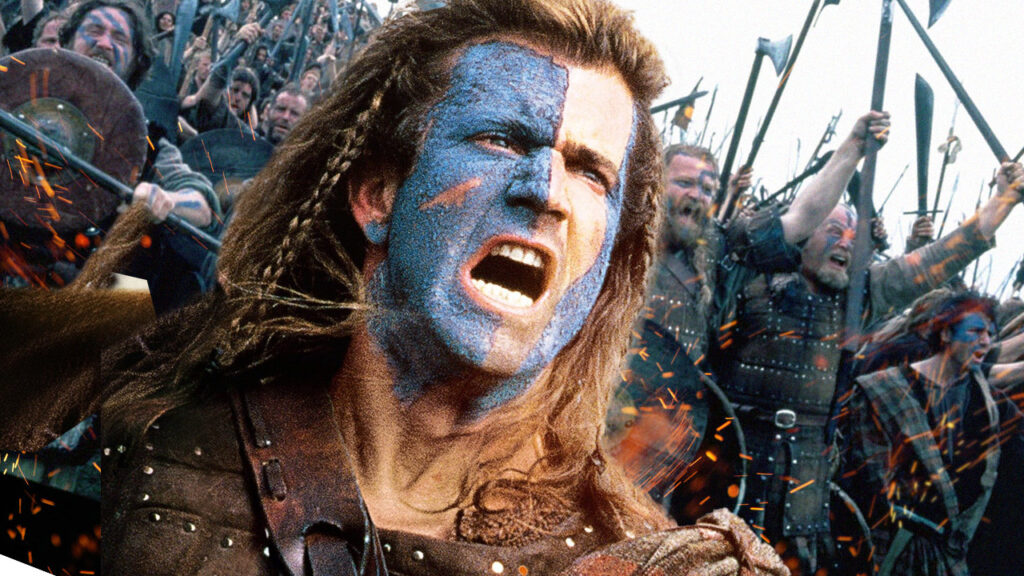
Everyone loves a good, especially if the person has lived an exciting life. The big problem is that some people don’t. So, to tell a compelling story on the big screen, filmmakers feel the need to tweak the truth slightly for dramatic effect. Maybe a tiny white lie here and there. When overdone, the film goes from a record of history to a completely made-up story. It turns out biopics have been lying to us for a long time. Who can you believe?
Braveheart (1995)

A great story of an ordinary man who stood up to the sprawling empire of Britain and who inspired the people around him to take up arms to protect their land. Except this movie has been listed as one of the most historically inaccurate of all modern film. Historians have stated that the William Wallace presented in the movie never existed. The real Willam Wallace was not from a simple farm life. His father was mid-level royalty. He was well educated and even traveled with his own chaplin.
Experts on the fashions of the time have stated that nothing anyone wears in the film is historically correct. The face paint they wear was out of use a thousand years earlier, and the kilts they were wearing didn’t come into use until five hundred years later. They equated it to a film about Colonial America but showing the characters wearing 20th-century business suits, also with the jackets on backward. Oof. Biopics are supposed to at least be partially accurate.
The Blind Side (2009)
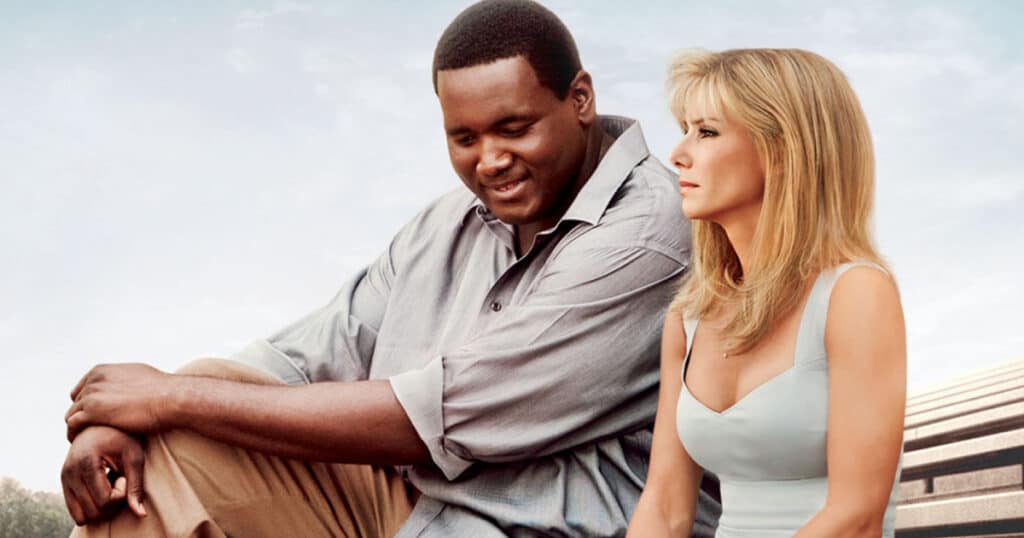
A lot has come out about the true story behind this film since it was made. In the movie, a well-off family adopts a homeless kid and shows him what he can achieve on and off the field. The film’s subject, Michael Oher, who would go on to play in the NFL, was not a big fan of his portrayal on screen. He felt they made him look dumb and knew nothing about football. In reality, he excelled in school once he was given a stable living environment and had been a big football fan since he was young. He did say he liked the film’s message, though, and chalked it up to dramatic liberties.
Years later, Oher would sue his “adopted” family and say that they never actually adopted him. He claims they put him under a conservatorship and used his name and likeness to bring in millions of dollars while he got nothing. The family would state that it was true they never adopted him because he was over 18 when they met him. As for the millions of dollars they supposedly received, the film company chimed in that they never paid the family that much money at any point. A review of the dealings found that most of the family had only received $100,000, which they evenly split between each family member, including Oher. An example of how biopics can go wrong.
Bonnie and Clyde (1967)
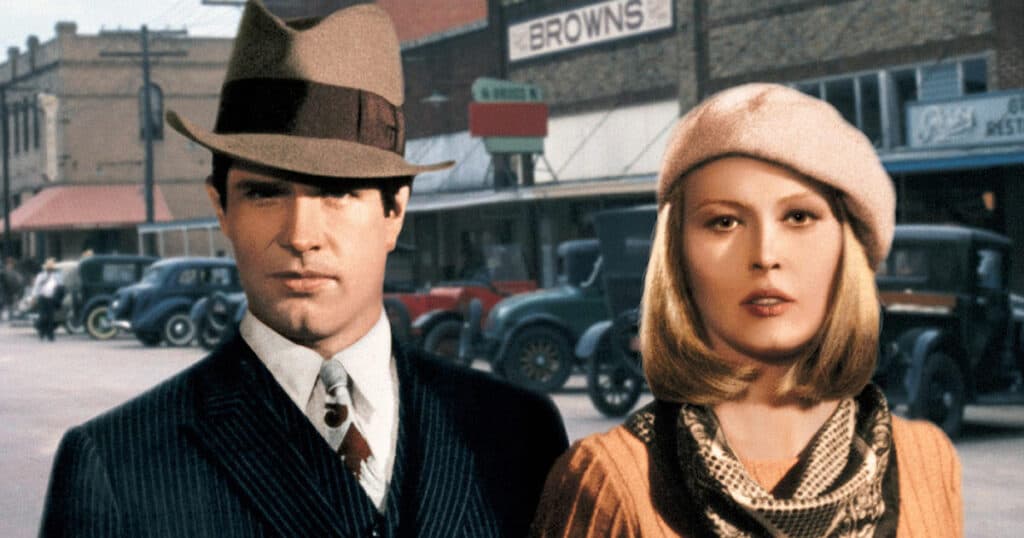
Warren Beaty put maybe the most famous two names in criminal history on screen back in 1967. The duo is seen robbing banks and living to steal money only from big corporations. Well, that wasn’t really their motive. The pair ran their own gang, but Bonnie Parker and Clyde Barrow are probably the only two most known from the group. In the film, they romanticize the pair while also portraying them as middle-class heroes.
Meanwhile, in real life, the pair and their gang had no problem robbing small grocery stores and funeral homes. When they encounter Frank Hamer, they mock him and make him look like a fool. In reality, he was a distinguished Texas Ranger who was asked to come out of retirement to catch them. He didn’t encounter them in person until the shootout that killed them. One of the only surviving members of the gang, Blanche Barrow, complained that the film made her look like a screaming horse’s ass. Not even criminals are safe from movie license.
The Social Network (2010)
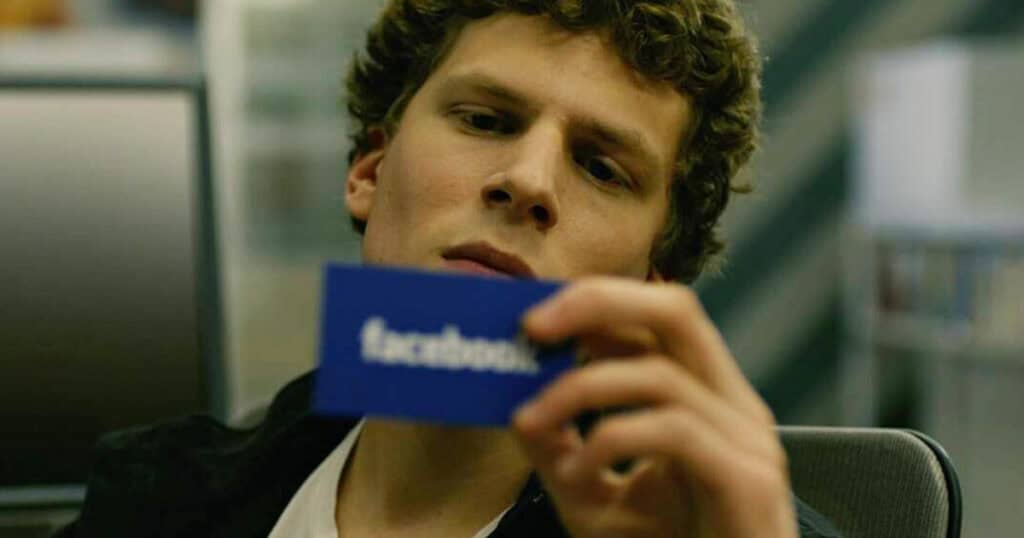
The creation of one of the biggest social media platforms in the world had to come with some hiccups, right? Yes, but maybe not as many as Aaron Sorkin and David Fincher would lead you to believe. The film would want you to think that Facebook was solely created to spurn an ex-girlfriend. Zuckerberg, if you can believe him, says this is inherently not true. He will acknowledge that the film does hit a bullseye in some departments, though. While he says the partying and drama shown in the film are false, he does say that everything they have him wearing in the film is clothes he has in his closet.
Others involved have said that their depictions in the movie are way off the mark, but they understand that without some drama infused into it, the film would be pretty dull. They show friendships being broken and backs being stabbed, but a lot of the real-life people are still friends to this day. Facebook’s COO Sheryl Sandberg has said that the film is very dramatized because if they showed what really happened, it would just be Mark Zuckerberg and his friends ordering pizza all the time. Is this the only biopic about a social media platform?
Bohemian Rhapsody (2018)
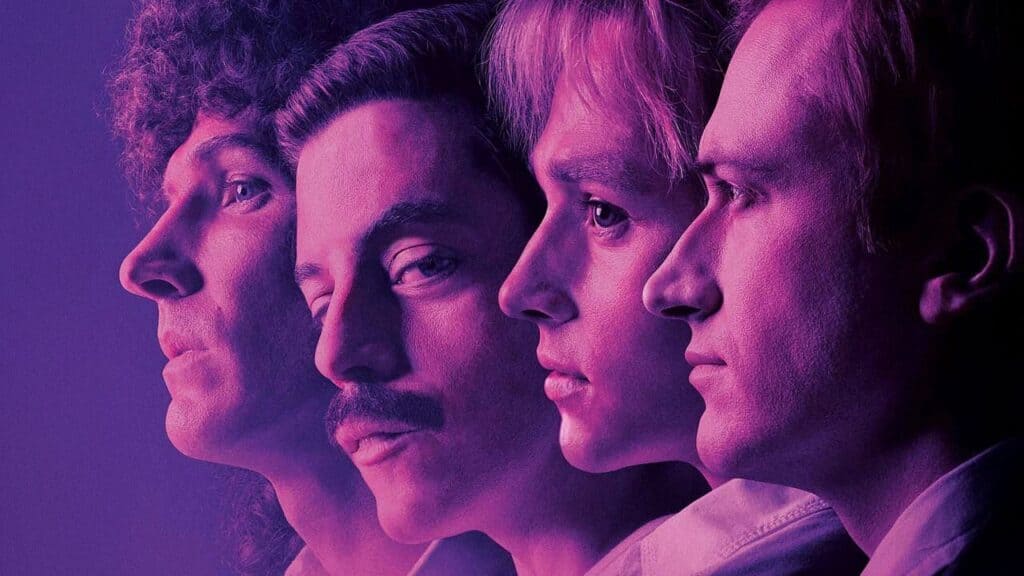
One of the biggest personalities in Rock and Roll had to get a biopic at some point. While not entirely accurate, some have said it hits at about 80%, which isn’t too bad. Many of the issues in the film are just timelines, as certain songs were shown being created out of order and played during some tours before they were actually written. It’s not a big deal in the grand scheme of things.
The significant issues seem to deal with friction within the band itself. Mercury, doing some solo projects, seems to break up the band before they decide to get back together to play their legendary set at Live Aid. This isn’t true at all. Every band member had their own side projects, and no one cared that Mercury was doing his own thing. Their Live Aid performance was planned well in advance, and the band had just gotten off a world tour eight weeks prior to the event. We all need a little drama in our movies sometimes.
The Greatest Showman (2017)
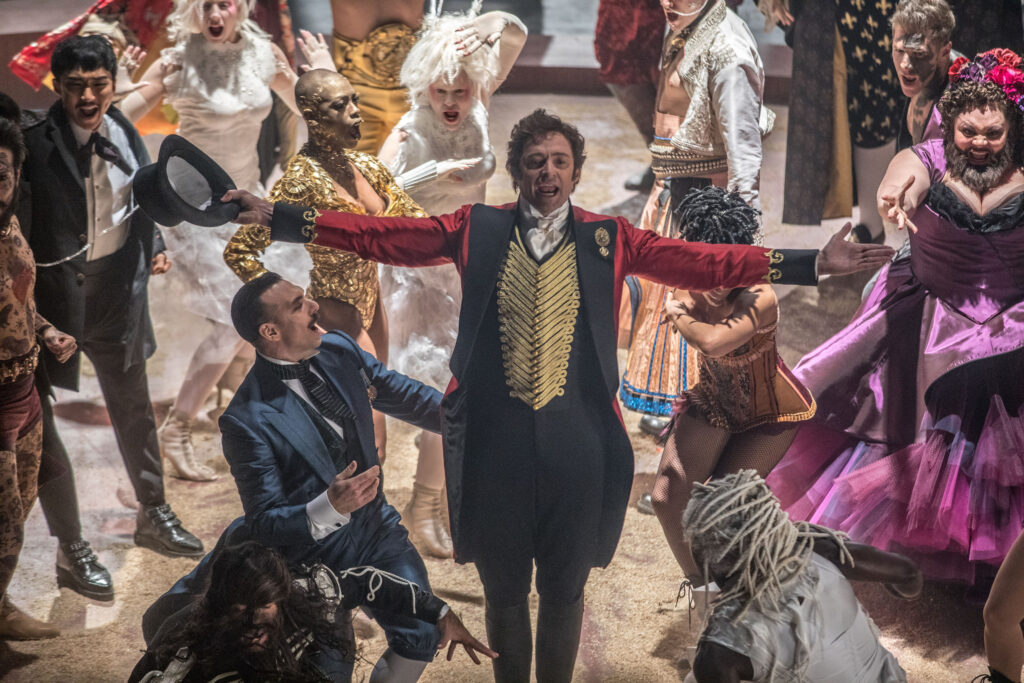
Well, no, duh. No one would expect that P.T. Barnum walked around singing about his day all the time. Even so, the life that they show in the film, as Barnum aims to put on a magical show to entertain the masses, leaves out a lot of things—pretty much all of them problematic. Hugh Jackman did what he could to make him seem like a master of entertainment, but if they had shown the truth, even the loveable Jackman wouldn’t have been able to win over an audience.
Barnum actually got his start showing off an African slave woman and claimed she was over 160 years old. She was 70. During this time, it was illegal to have slaves in New York, but Barnum got around that by “renting” her for performances. After her death, he performed a public autopsy and charged people to come and watch. All of this is on top of the cruelty to animals that would become a bigger part of his act years later once his circus started. Most who knew him claim that Barnum was a horrible human being.
Patch Adams (1998)
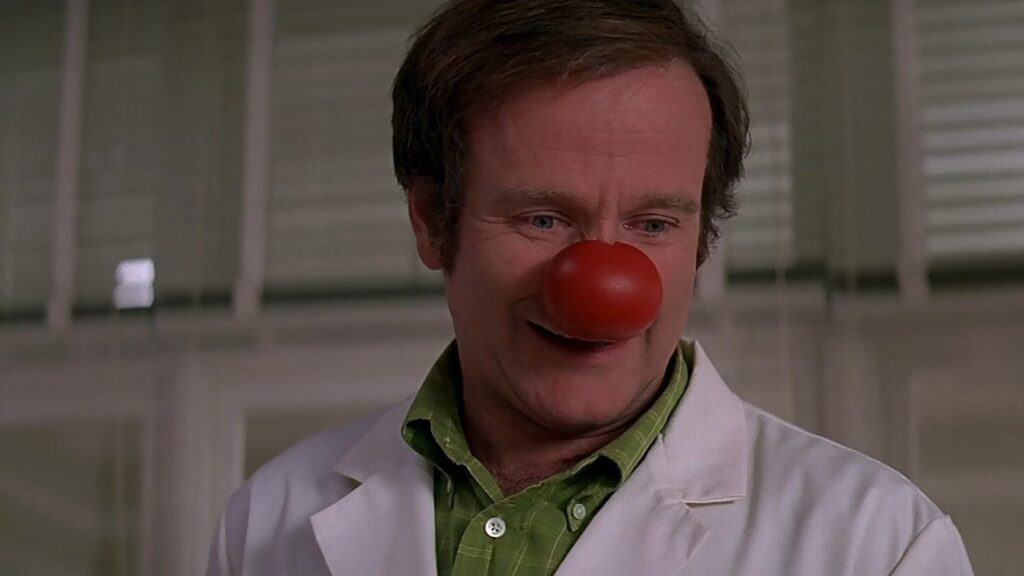
Robin Williams as a funny doctor that made hospitals tolerable for sick children. How could that not be accurate? Well, you could ask the actual Patch Adams. While he appreciates Robin Williams playing him on the big screen, he said he’s not a fan of the film. His big gripe seems to be that the movie depicts him as a funny doctor. Not someone who has done serious work on preventing childhood diseases.
Another thorn in his side is that Adams said the film studio was supposed to donate a portion of the film’s profits to help build a hospital to continue his work. They allegedly never have. He was also salty at Williams, as he stated that Williams made $21 million for the film. He never donated any of it to his cause. Adams has softened over the years, but at the end of the day, he does not like the film.
The Buddy Holly Story (1978)
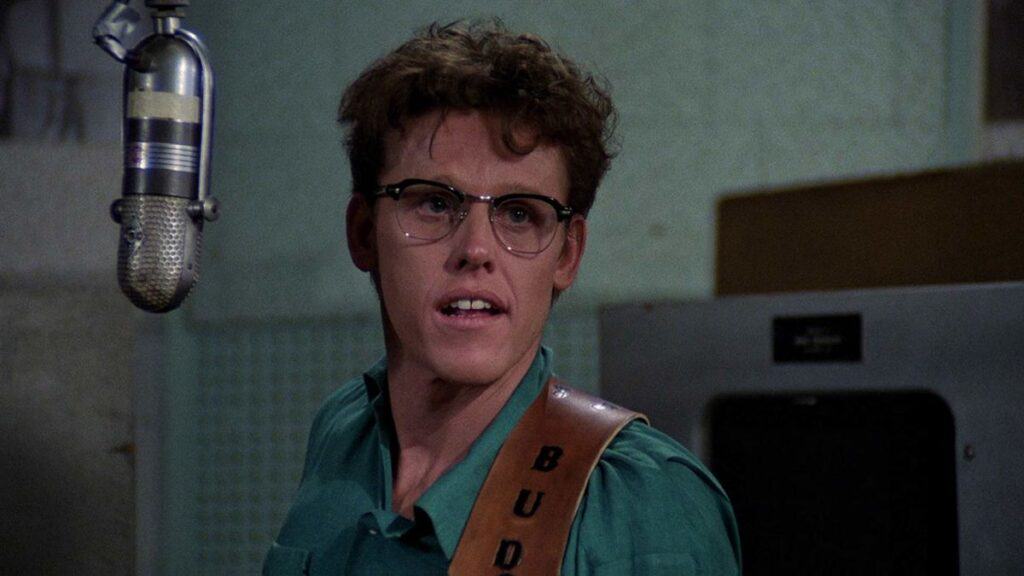
One of the biggest names in early Rock and Roll can only be played by one of the most prominent personalities in cinema. That’s why Gary Busey got to play him in the 1978 film. Of course, this was before Busey’s infamous motorcycle accident made him the man we know today. While most know the broad strokes of Buddy Holly’s short career, this film really dove deep into his life. Or did it?
The titular Peggy Sue from the famous song called the film a bunch of Hollywood gobblygook. Even Paul McCartney dismissed it. He disliked it so much that he helped make a documentary called The Real Story Of Buddy Holly. The major points of contention seemed to be the treatment of Holly’s band, The Crickets, his family life, and the omission of producer Norman Petty.
The Iron Lady (2011)
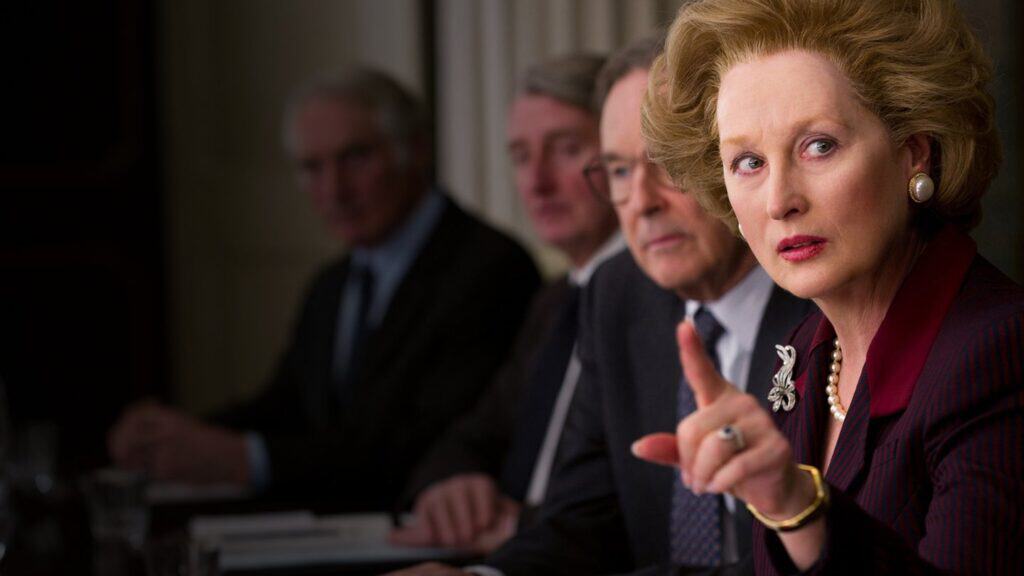
Margaret Thatcher was a force to be reckoned with while she was in the government of Great Britain. While the film about her time shows that, it also embellishes some of her time for dramatic effect. This is not unheard of, but the film fiddles with timelines and puts her at events she wasn’t around for. This is not surprising, but it is easily found if one does a quick Google search.
When she begins her career, they depict her as being the only female in Parliament. This was untrue, as there were other female members at that time. It was also shown as a snooty boys’ club, which was overdone to set up more of a dramatic effect on her rise through the ranks. The film also suggests she was present for her fellow member Airey Neave’s assassination. This was false, as she was not even in the same city at the time.
What are some of the biopics you know are false? Let us know in the comments.
The post Great Biopics That Stretched The Truth (A Lot) appeared first on JoBlo.
Leave a Reply